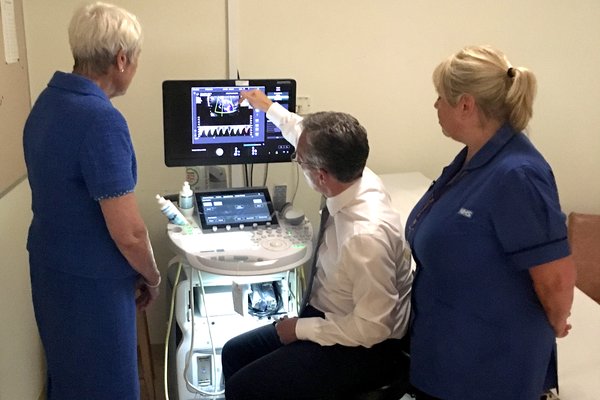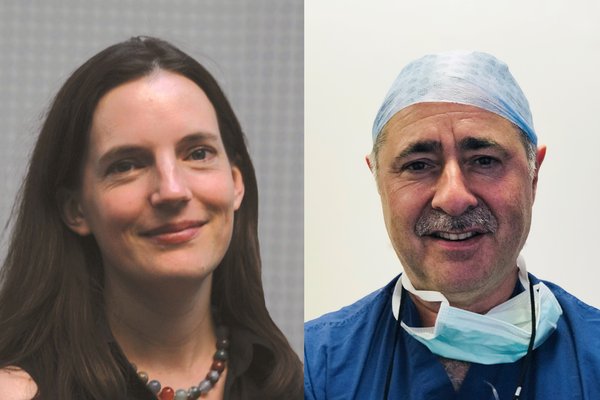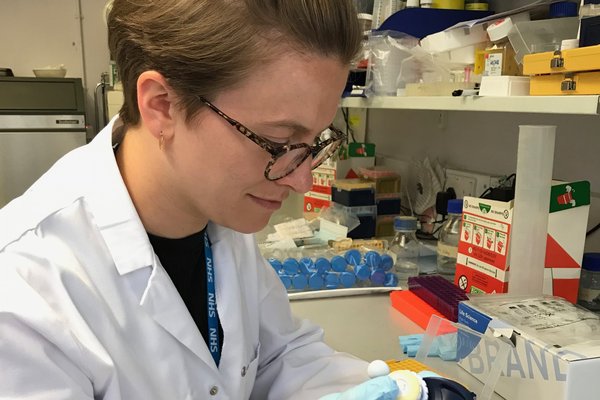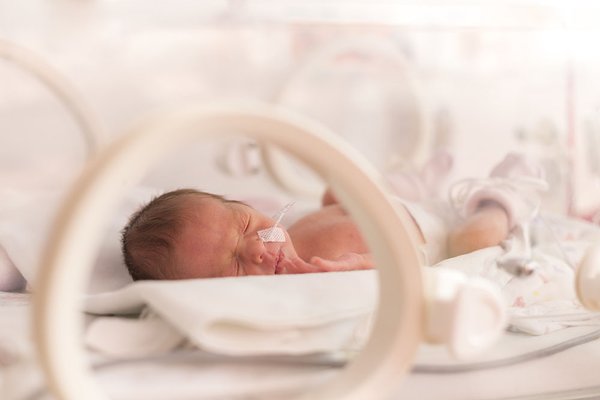
Why are some women's wombs more 'receptive' than others?
Wellbeing of Women has invested £192,724 into Dr Jane Cleal’s research into understanding why some women struggle to become pregnant or experience miscarriage
A miscarriage is a pregnancy loss before 24 weeks of pregnancy.

A miscarriage is a pregnancy loss before 24 weeks of pregnancy.
Going through miscarriage can be very difficult. There is more information about how you, and your partner if you have one, can get help and support.
Most parents worry about miscarriage in early pregnancy. Sadly around 1 in 8 pregnancies end in miscarriage.
About 8 in 10 miscarriages happen in the first 13 weeks of pregnancy. Many happen before people even know they are pregnant.
After 13 weeks the chance of miscarriage drops very quickly. It is very unlikely that you will have a miscarriage at 16 weeks or later.
If you have three or more miscarriages in a row, it is called recurrent miscarriage. This is uncommon and affects around 1 in 100 women.
For about half of miscarriages, the cause is not known.
In early miscarriage, it can be because your baby is not developing properly. This may be because of problems with your baby’s chromosomes, which carry their DNA. This is usually a one-off for parents, and many people go on to have a successful pregnancy.
It can be easy to blame yourself for a loss. But rest assured, a miscarriage is not caused by things like having sex, doing your usual exercise, or carrying on working.
There are some things that put you at higher risk of miscarriage:
Some pre-existing conditions increase the chances of miscarriage. These include:
Some infections, including sexually transmitted infections (STIs), can also be linked to miscarriage.
If you have an infection in pregnancy or an existing long-term health problem, talk to your health professionals as soon as you can.
The NHS has more information on these risks and what can help.
If you are pregnant and have any bleeding contact your early pregnancy assessment unit (EPAU) or GP as soon as possible. It does not always mean you are having a miscarriage. There are other causes of bleeding in pregnancy. About a quarter of women will have some spotting or light bleeding in very early pregnancy, but it is important to be checked.
Some symptoms can be a sign of an ectopic pregnancy which can be serious in some women. Find out more about ectopic pregnancy.
Some people do not have any symptoms. The miscarriage may only be found on an ultrasound scan. This is sometimes called a silent or missed miscarriage.
If your midwife or doctor thinks you are having a miscarriage, they may:
You may be sent to an early pregnancy assessment unit for assessment.
The charity Tommy’s (who specialise in supporting people through baby loss) have more information about the tests and checks you may have.
Sadly, if you are having a miscarriage there is no treatment to stop it.
Your care team will focus on making sure that no pregnancy tissue is left in your womb.
If pregnancy tissue remains in your womb, or the miscarriage is picked up on a scan you have some choices.
These can be very hard and upsetting decisions to make. You may need some time to make them, and you may have many questions to ask.
Your health professionals should explain everything. They should also provide you with information so that you can take time to think things through.
The NHS and Tommy’s have more information.
If you have been through or are going through a miscarriage there is lots of support and help available. This could be from your doctor, midwife, or other health professionals. You could ask to be referred for counselling. You can also find support online from:
Most miscarriages happen as a one-off. You have a good chance of having a healthy pregnancy and baby. Most people go on to have a baby after having a miscarriage
Around 1 in 100 people have more than one miscarriage. You may be able to have treatment to help with this. Talk to your doctor if you have had more than one miscarriage.
Your doctor may suggest you wait until you’ve had at least one normal period before you get pregnant again.
This is because it shows your body is ready again. It also makes it easier to work out your due date in your next pregnancy.
Let's Talk Miscarriage webinar
Director of Women's Health Research Centre and Principle Investigator of the Recurrent Miscarriage Tissue, Professor Dame Lesley Regan talks about the experience of pregnancy loss, moving from the biology and physical experience to the emotional impact. She is joined by broadcaster and journalist Tulip Mazumdar, who shares her experience of maternal health issues that women face and her own experience of pregnancy loss.As a women’s health charity, part of what we do is fund research to save and change the lives of women, girls and babies.

Wellbeing of Women has invested £192,724 into Dr Jane Cleal’s research into understanding why some women struggle to become pregnant or experience miscarriage

Since 1983, the generous establishment of six UK research centres has transformed how experts treat recurrent miscarriage, cancer and pregnancy complications

Wellbeing of Women has invested £199,267 in Professor Molly Stevens and Richard Smith’s project to treat a condition that causes infertility and pregnancy loss

Dr Emily Cornish has been awarded £18,847 to investigate new treatments for a little known, but tragic, pregnancy complication

Premature birth is when you give birth early - before you’re 37 weeks pregnant. It is also called preterm birth or premature labour. Some people have a higher chance of an early birth. Support is available if your baby’s born early.

It’s common to have mental health problems during or after pregnancy. Your midwife or doctor is there to support you. There are also ways to look after your own wellbeing.

An ectopic pregnancy is when a fertilised egg implants itself outside the womb. Sadly, it is not possible to save an ectopic pregnancy. If left untreated an ectopic pregnancy can be life threatening.